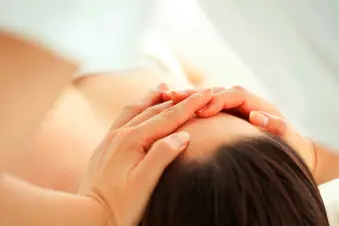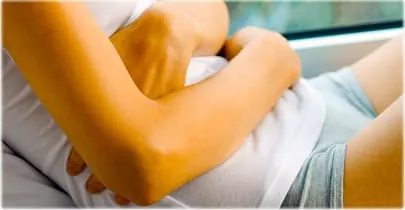Painful Periods Quiz: What's Your Menstrual Pain IQ?


Question 1/16
Pain during menstruation is "normal."
- True
- False
Question 2/16
Menstrual pain is considered abnormal "dysmenorrhea" when:
- Over-the-counter medications don't work
- Pain begins on the first day of the menstrual period
- Pain lasts an entire menstrual period
- Pain prevents you from engaging in normal activities
Question 3/16
Which of the following is a potential symptom of dysmenorrhea?
- Vomiting
- Dizziness
- Headache
- All of the above
Question 4/16
Painful periods are the second leading cause of absences at school or work among women in their teens and 20s.
- True
- False
Question 5/16
Women with painful periods should avoid sex.
- True
- False
Question 6/16
Painful periods can be caused by endometriosis, a condition that occurs when endometrial tissue, which lines the inside of the uterus, begins to:
- Swell
- Hemorrhage
- Calcify
- Develop in other parts of the body
Question 7/16
Painful periods can be caused by fibroids, which are:
- Benign tumors of the uterus
- Malignant tumors of the uterus
- A type of ovarian cyst
- None of the above
Question 8/16
You should see a doctor if you have severe menstrual cramps or cramps that last for:
- More than a day
- More than two or three days
- An entire menstrual period
- Two consecutive menstrual periods
Question 9/16
You're more likely to experience menstrual cramps or prolonged pain if you:
- Smoke
- Drink alcohol
- Have heavy periods
- All of the above
Question 10/16
Most menstrual pain occurs during which phase of the cycle?
- During ovulation
- Just after ovulation
- When the egg moves into one of the fallopian tubes
- When the uterus sheds its lining
Question 11/16
Acupressure and acupuncture can help prevent painful periods.
- True
- False
Question 12/16
Which of the following may help ease menstrual pain?
- Thiamine
- Caffeine
- Sodium chloride
- Guar gum
Question 13/16
Meditation and other stress-reducing techniques can help ease menstrual pain.
- True
- False
Question 14/16
NSAIDs (non-steroidal anti-inflammatory drugs) can ease menstrual pain. Which of the following is an example of an NSAID?
- Estrogen
- Ibuprofen
- Tetracycline
- None of the above
Question 15/16
Which of the following treatments for painful periods thins the inner lining of the uterus?
- NSAIDs
- Birth control pills
- Heat treatments
- None of the above
Question 16/16
Menstrual pain may ease after childbirth.
- True
- False
